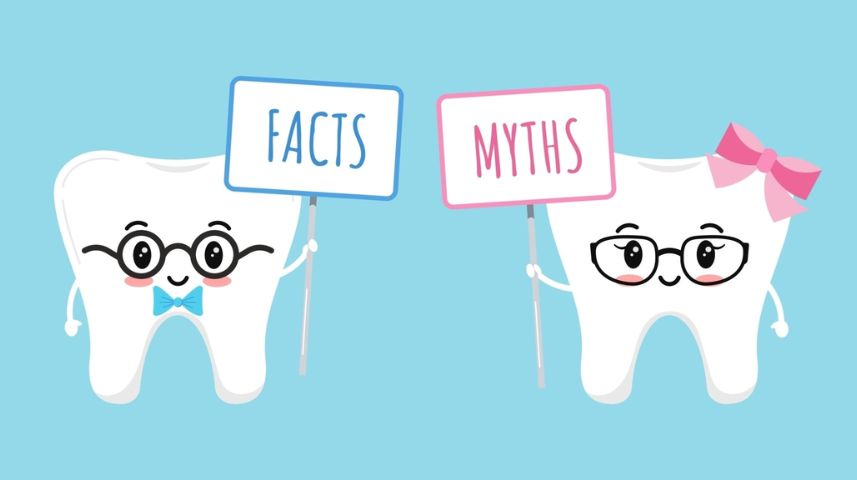
Our oral health is a critical component of our overall well-being, yet it's often shrouded in myths and misconceptions. From old wives' tales to internet rumors, these myths can lead to confusion and potentially harm our teeth and gums. In this article, we'll debunk some of the most common dental myths and set the record straight.
Myth 1: Sugar Is the Main Cause of Tooth Decay
While it's true that sugar can contribute to tooth decay, it's not the sole culprit. Tooth decay occurs when bacteria in our mouths feed on sugars and produce acids that erode the enamel. This can happen with any carbohydrate, not just sugar. Starchy foods like bread and pasta can also lead to tooth decay. The key is to practice good oral hygiene, including regular brushing, flossing, and dental check-ups.
Myth 2: You Should Always Rinse After Brushing Your Teeth
Many people believe that rinsing your mouth with water or mouthwash immediately after brushing is essential. However, this practice can wash away the concentrated fluoride toothpaste left on your teeth, reducing its effectiveness. It's best to avoid rinsing for at least 30 minutes after brushing to allow the fluoride to work its magic and strengthen your tooth enamel.
Myth 3: If Your Gums Bleed, You Should Stop Flossing
Bleeding gums are a common sign of gum inflammation or gingivitis. Contrary to what some may think, this is not a reason to stop flossing. In fact, regular flossing helps remove plaque and bacteria that cause gum inflammation. If your gums bleed when you floss, it's an indication that you need to floss more consistently to improve your gum health.
Myth 4: Brushing Harder Is Better for Your Teeth
Scrubbing your teeth vigorously might seem like a good way to remove plaque and stains, but it can actually harm your enamel and gums. Brushing too hard can lead to enamel erosion and gum recession. Instead, use a soft-bristle toothbrush and a gentle, circular motion to clean your teeth effectively without causing damage.
Myth 5: Natural Sweeteners Are Better for Your Teeth
Some people believe that using natural sweeteners like honey, maple syrup, or agave nectar is a healthier choice for their teeth compared to refined sugar. However, these natural sweeteners are still high in sugar and can lead to tooth decay if not consumed in moderation. It's important to remember that when it comes to your oral health, sugar is sugar, whether it's natural or refined.
Myth 6: You Don't Need to Visit the Dentist If Your Teeth Aren't Hurting
One of the most dangerous dental myths is the belief that you only need to visit the dentist when you're experiencing pain. Regular dental check-ups are essential for detecting and addressing oral health issues before they become painful or more severe. Dentists can identify early signs of problems such as cavities or gum disease, which are easier and less expensive to treat when caught early.
Myth 7: Chewing Sugar-Free Gum Can Replace Brushing
While chewing sugar-free gum can help stimulate saliva production and neutralize acids in your mouth, it's not a substitute for proper brushing and flossing. Gum doesn't remove plaque and food particles from your teeth, so it should be viewed as a supplementary oral care practice rather than a replacement for brushing and flossing.
Conclusion
Clearing up these common dental myths is essential for maintaining good oral health. Don't let misconceptions guide your dental care routine. Instead, rely on evidence-based practices and regular dental check-ups to keep your teeth and gums in excellent condition. Remember, your dentist is your best source of information for maintaining a healthy and radiant smile.

